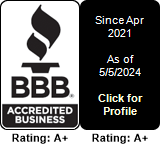Google recently updated its quality rating guidelines and EAT now makes more of a difference than ever. So if you want to boost your search rankings on Google, you need to improve your EAT ranking.
Having a high EAT ranking means you display expertise, authority, and trustworthiness in your content. So just how do you improve your EAT ranking? Follow our top five tips to boost your position in the rankings and enhance your SEO strategy.

Include author names and biographies in your editorial content
To assess the quality of websites, pages, and search results, raters at Google use the Quality Rater Guidelines. These guidelines state that knowing who is responsible for a website is one of the critical factors in assessing EAT.
Customer support and business contact information should also be easily accessible for landing and product pages. Include author names and information for blog posts or other editorial content. This enhances the expertise and authority of the writer. Even a short author bio will help to boost your Google rankings.
Invest in personal branding
Did you know that EAT raters are encouraged to review reputation information created by third parties? If you want your pages to rank, you must have content about yourself and/or your brand on the internet.
However, the raters aren’t able to exclusively rely on content created by you. So investing in personal branding by third parties is always a wise choice. Do this by:
- Adding more to your social media profiles
- Interacting with influencers and your audience
- Using thought leadership on social media to become the ‘go-to’ brand for advice
- Telling a story to connect with your audience.
By doing this, you can earn a positive reputation in your industry, which results in much-needed third-party endorsements – the kind that raters will see!

Eliminate low EAT content
Low EAT content on one page doesn’t necessarily impact your EAT scores on other pages. However, it can negatively impact your site’s reputation overall.
Evaluate all the content on your site and eliminate any pages with low EAT content. If you notice any of your pages with particularly high EAT and traffic, then they deserve special consideration. What makes those pages so popular? And how can you replicate that on other pages?
Use technical security
Fun fact: Chrome now marks all HTTP pages as “Not Secure”. Any site without an SSL certificate won’t redirect to an HTTPS URL and will receive a low-security rating. This will inherently hurt your EAT in terms of trustworthiness.
Using technical security like an SSL as well as verifiable badges and certifications will help you earn the “highest” quality rating and boost your rankings.
Read: 3 reasons why you need SSL
Moderate user-generated content
User-generated content (UGC) doesn’t always have a low EAT rating – but it could, which is why it should be heavily moderated. Creators of UGC aren’t always certified experts on the topic and therefore any advice they give could harm the quality of someone’s life or finances. Sometimes these pages are labeled as “YMYL” (your money or your life).
That’s not to say that community pages can never exist. Sometimes there are niche topics and hobbies discussed on internet pages in which there aren’t any real “experts.” In these cases, individuals in these communities can adequately address topics.
We’re helping businesses get on the first page of Google with smart and engaging SEO and EAT tactics and strategies. Do you want to be on the first page of Google? Book a free consultation with Southern Digital Consulting today.


